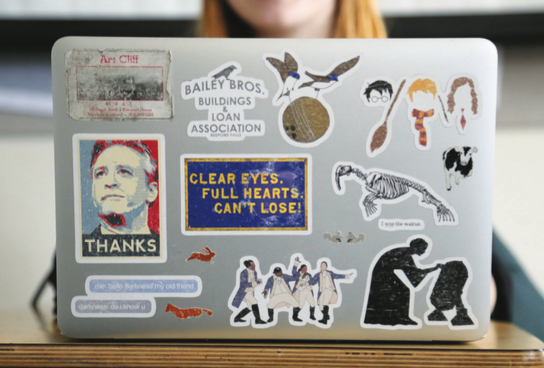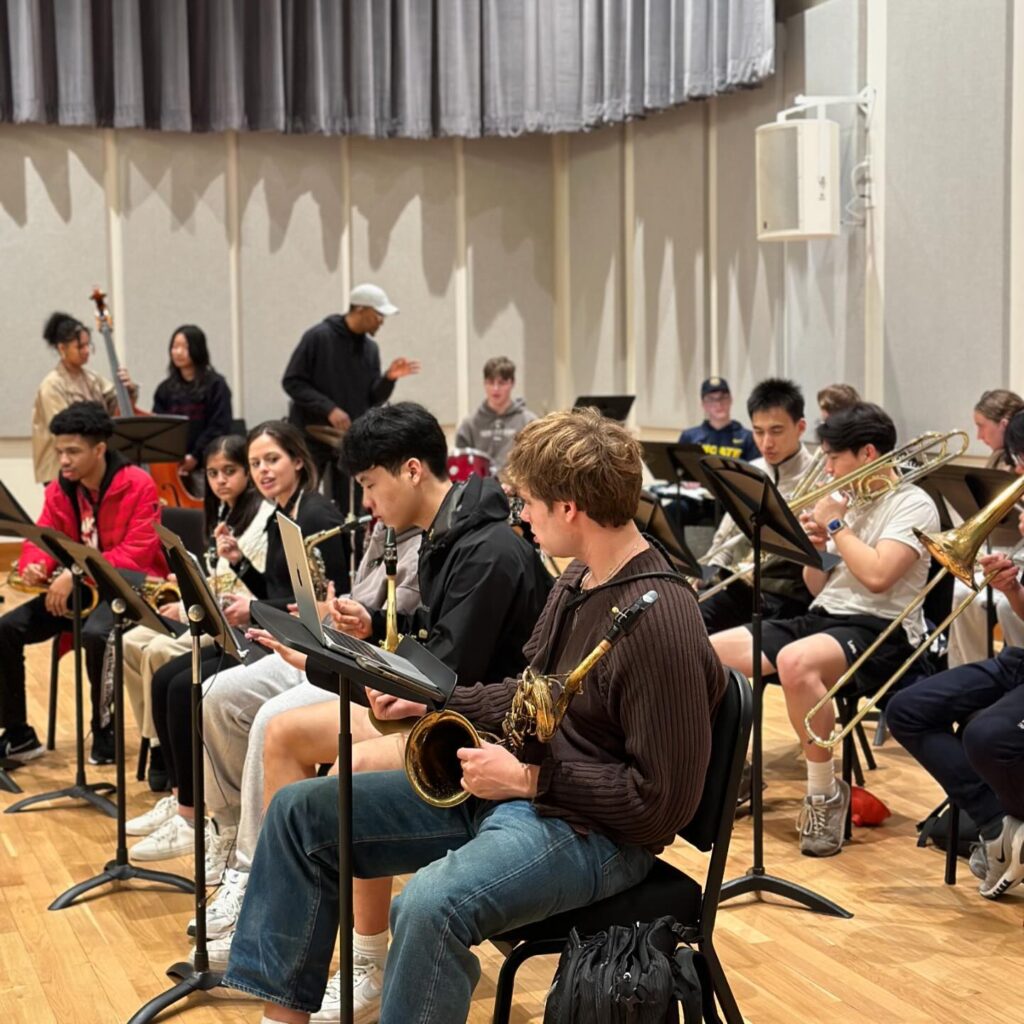
A computer layered with stickers showcases many interests, ranging from Harry Potter to Hamilton to Jon Stewart.
We see computer stickers everywhere in an array of designs — from organization advertisements to creative slogans and artistic designs. Initially, when students are asked what is the purpose of their computer stickers, the question is met by answers such as, “I am not sure,” “I guess I felt my computer was pretty empty”, and “I like them; it’s cool.” A student even said, “I guess it’s just something we do.” Do stickers only serve as a form of computer accessory or do they hold a significance beyond their perceived simplicity?
As students are pushed to think further about the significance of their stickers, a popular response emerged: computer stickers create a platform for self-expression. Having stickers on our devices is a way to showcase our interests, which make up a big part of who we are. Elsa Rose Farnam ’18 clarified, saying, “It’s a way to show the things you like, the things you are proud of, and the pieces of culture you want to be a part of.” For some people, the purpose might be obvious, but, for others, this way of thinking about stickers might be elusive. In light of this, we begin to realize that our sticker decorations often consist of the things we enjoy, such as our favorite places, our favorite sports teams, or our favorite TV shows and movies. Klaudia Horvath-Diano ’17 explained that one of her favorite stickers is a quote from the TV series Friends. Another student, Kay Ingulli ’18, mentioned, “My family’s from Maine,” which is why her stickers portray her patriotism to her state. Stickers allow the people around us to catch a glimpse of the vast realm of who we are.
Computer stickers not only present a stage for expressing oneself, but they also establish connections with others. Putting stickers on one’s devices provides the owner with a sense of vulnerability. The owner is putting a part of himself or herself out there for the entire world to see. In this way, he or she is opening himself of herself up for others to judge, whether we like it or not; however, more often than not, this vulnerability is met by a bond rather than a criticism. Having stickers is just another opportunity to invite people to find similar grounds of interest. Even if there is no connection, a sticker has the power to start discussions. When asked about his Blue Lives Matter sticker, Kevin Shen ’17 replied, “I agree with the statement, but others may not. It’s better than just having a plain computer. I think it starts conversation.” Kevin Shen ’17 continued, saying that Choate students are often buried in their computers working on homework. Having this sticker attracts people’s attention and draws them to ask about the sticker and his connection to it.
We can agree that stickers showcase what we like, but are they a full or even accurate representation of who we are? Sometimes we spend too much time planning and thinking about the organization of our computer stickers. We are more selective about picking what to put and what not to put on our laptops. This takes away from an accurate representation, because instead of putting things we like, we tend to choose stickers we think we like, or stickers that others like. Instead of showing who we are, we are showing who we want to be, an ideal. We are who we are, but the philosophical question this entails is the following: is the person we want to be a part of who we are?
On a different note, after an insightful conversation with Kay Ingulli ’18, she agreed that stickers are simply temporary, adding, “I chose to put her stickers on a folder instead of a computer, because I did not want them to be permanent.” Other students apply their stickers onto cases instead of directly on their computers fearing that they might one day want to change their stickers. As teenagers, we are constantly changing — we are constantly developing our ideas and opinions. Making stickers temporary is an act allowing for such changes to occur. It makes room for us to learn more about ourselves — to add to who we are.



